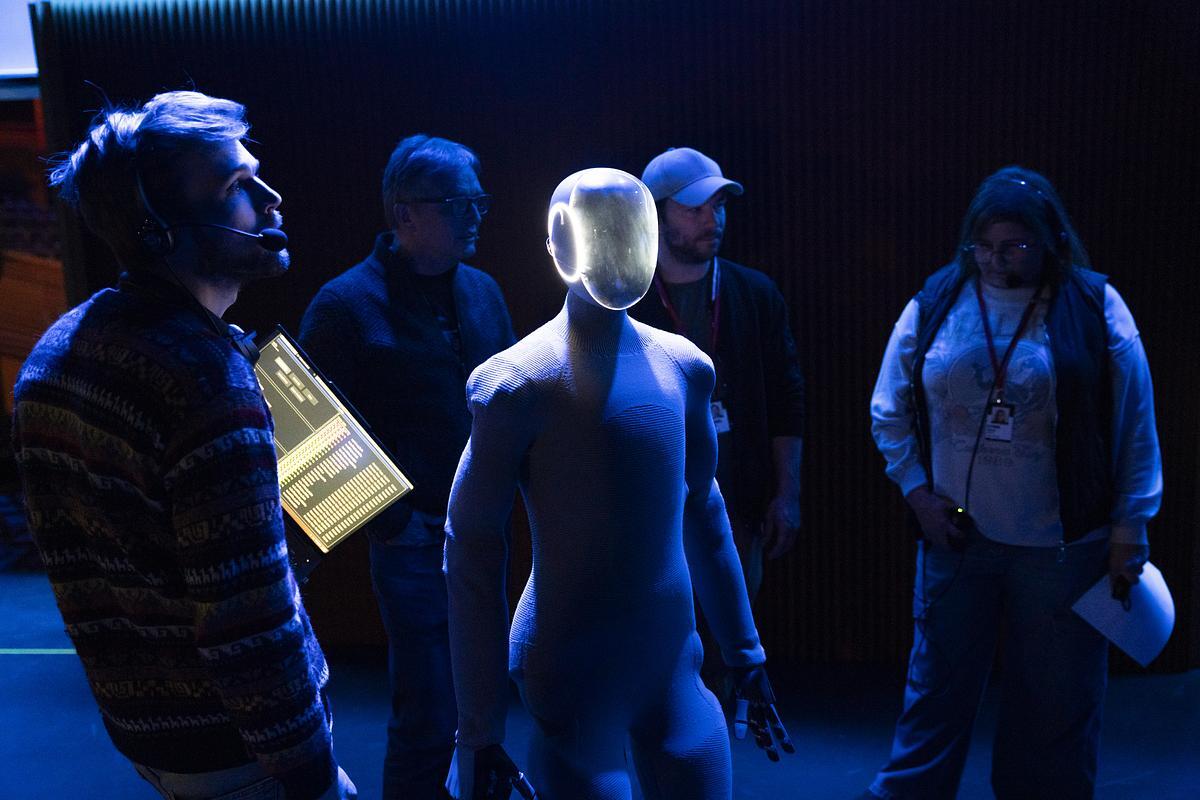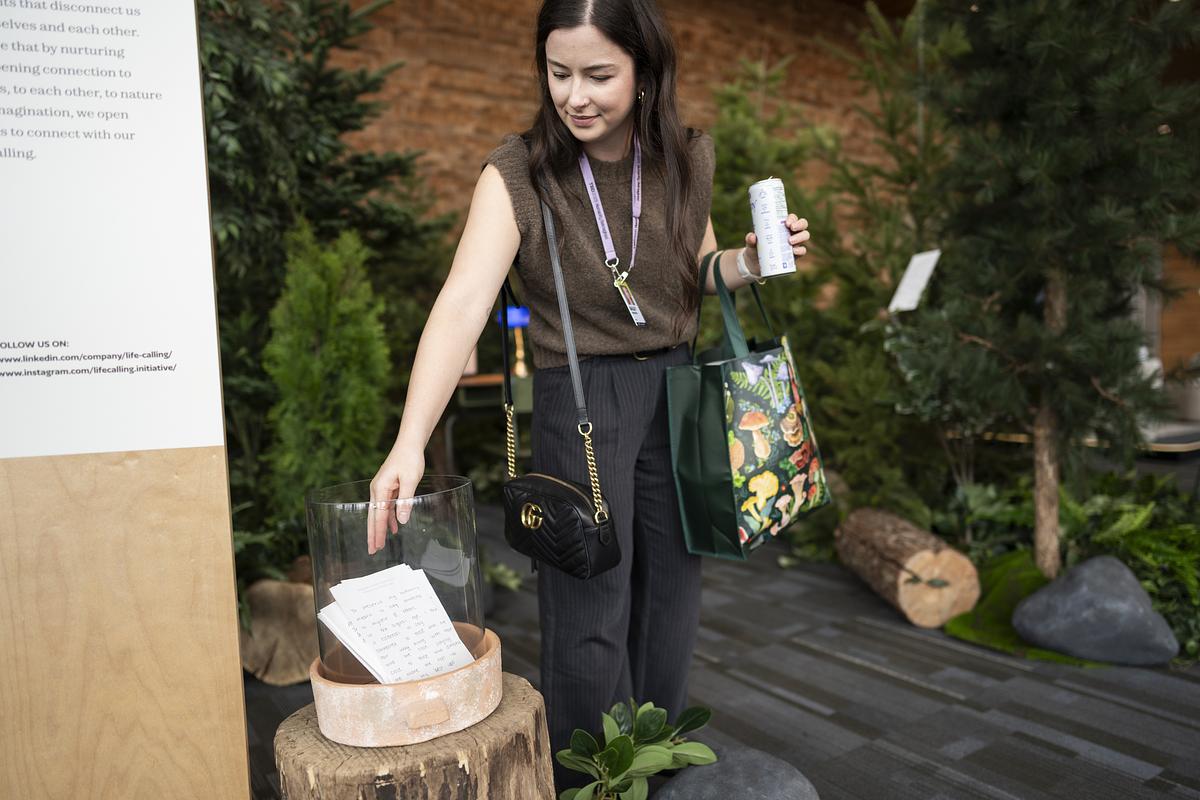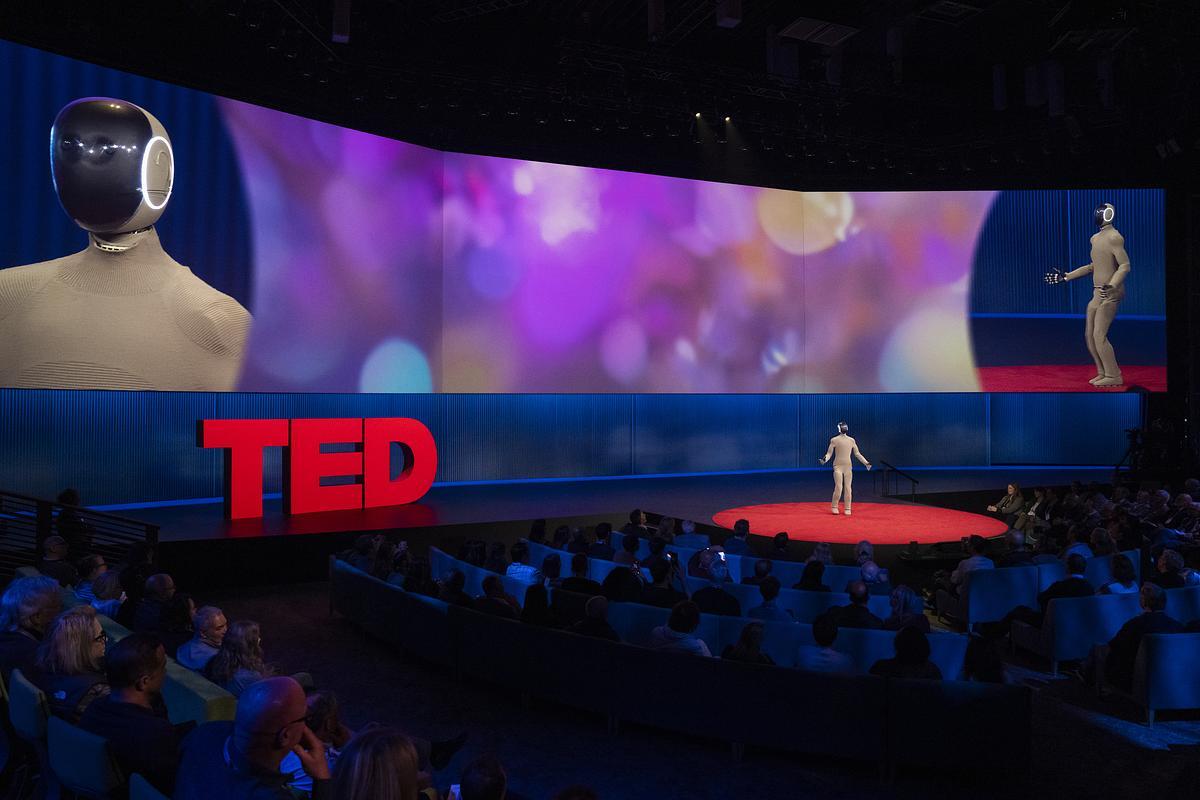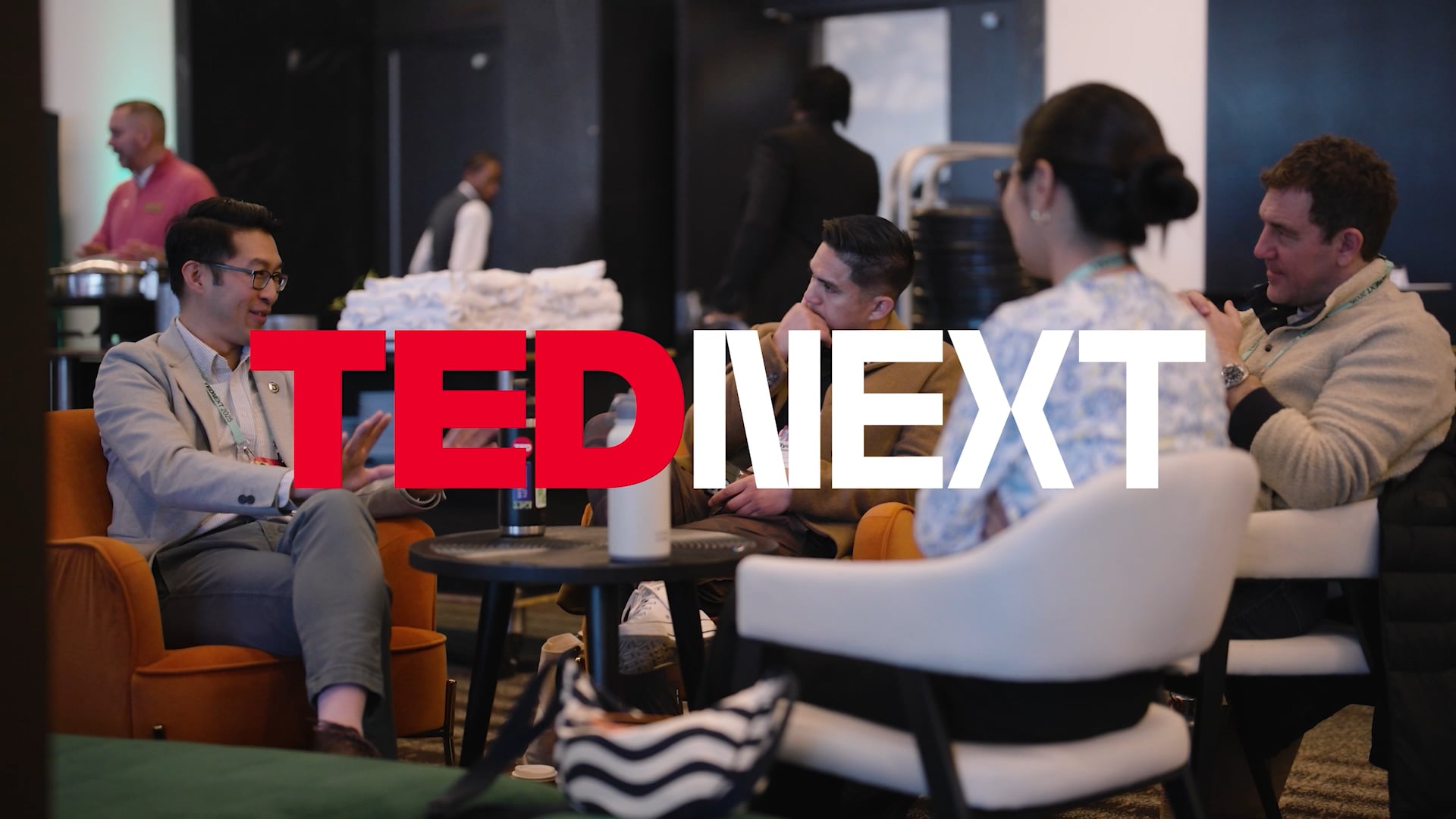Day 3 of TED2025: The tech revolution isn’t coming — it’s already here
With a conference themed “Humanity Reimagined,” AI and technology are bound to be a strong motif. But the thing about TED is that ideas never take the shape you expect. Sure, there’s talk of AI in the workplace, but what about AI as an artistic expression? Or as the potential villain in the fight for the human soul?
Nearly everyone I spoke to about AI gave me the feeling that the future is already here. And they’re not wrong: A robot walked onto the TED stage, gestured hello and vacuumed a model living room.
It’s not just in the movies: The robots are here — and here to stay.
Whether you like it or not, “AI is stepping off the screen into the physical world through robots,” says Catie Cuan, an entrepreneur, artist and TED2024 speaker. She envisioned a world where robots help with tasks that are “dirty, dull or dangerous” for us humans and can even grant the elderly more agency by helping out around the house.
I had several fascinating conversations with TED attendees about this new digital age, so here are some lessons I’ve gleaned for you to both survive — and succeed — in the age of AI.

3 principles for embracing technology
1. Friction can be a good thing
While normally you design for efficiency and ease, injecting friction into AI systems with high risk allows people to stop, reflect and think for themselves. “‘AI did it’ isn't an excuse,” said Tom Pagram, a partner and global AI factory leader at PwC — TED2025’s Strategic AI partner — “We need human accountability in every AI system.”
2. Know your data sources
“AI returns results based on patterns learned from data,” said Matthew Richmond, VP of design for Creative Cloud Pro Products at Adobe — TED2025’s Strategic Design Partner. “Understand the dataset you are using. If it is important to you, select tools that are built with transparency and safety in mind.”
3. Keep a really open mind
Apolinário Passos, a machine learning art engineer at Hugging Face, said he’s more interested in using AI as “a medium of expression” than a tool. Aside from film or graphics, could we create forms of work that we don’t even have a name for yet? For Apolinário, it’s “less about replacing what existed before, and more about creating things that were impossible before.”

2 tips for preserving your humanity
1. Don’t opt yourself out
“Fear is one of the main obstacles to inclusion,” said Catie. She warned that if you exclude yourself from the conversation, that creates a void for others to fill — right when the field needs as many diverse voices as possible. For anyone interested in AI or robots, “There is a space for you,” said Catie. “Do not say ‘I'm afraid’ and opt yourself out of that future, because other people will make those decisions for you.”
2. Slow down, and reflect
“Our relationship to technology is somewhat parasitic,” said John Mack, founder of the nonprofit Life Calling. “Notice when you reach for your phone. Did you reach for it because you're bored, or did you reach for it because you actually needed it to do something?” So often we use technology to fill a void, instead of just sitting in our humanity and being present with the world around us — and that’s a problem.
John’s advice became tangible with his exhibit “Notes to Humanity” on display at TED2025. At a desk nested amongst greenery, attendees are invited to handwrite their response to the question “What does it mean to preserve your humanity in the Digital Age?”
Since the exhibit’s start in New York City in February, the team has collected over 2,000 responses, many built upon very personal stories. A believer that we should use technology (not the other way around), John put these responses into ChatGPT to discover four key themes:
- Connection to self
- Connection to others
- Connection to nature
- Connection to imagination

These elements are what respondents say preserves our humanity. “The world moves so quickly these days, and to be able to reflect on this is a real gift, I think, for humanity at this point in time,” said John. The trouble is remembering to reflect regularly — and put your ideas into action.
Sometimes simple solutions go a long way. It can be as easy as setting your phone’s lock screen to a note reading “Stop. Reflect. What do you need?” My friend did this years ago, and the tactic always stuck with me. It’s a beautiful, frequent reminder to put down the device — and maybe take a sip of water.
I hope these tips help you feel empowered to advocate for the future you want, embrace the technology that’s here and enjoy life outside of your screens, too.
I can’t believe the week is almost over. I’ll see you tomorrow for day 4 of TED2025!
P.S. It’s not too late to join the fun remotely with TED Live. Tune in to watch the full conference on demand — plus our final talks streamed live from Vancouver. Hear from OpenAI CEO Sam Altman, global soul Pico Iyer, climate justice activist Xiye Bastida and more!
Share this Story


.jpg)
.jpg)
